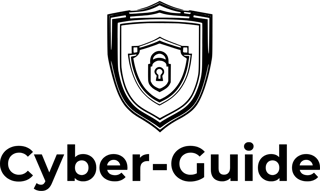The Rise of Decentralized Autonomous Organizations (DAOs) for Security Governance
BLOCKCHAIN AND SECURITY


In recent years, there has been a significant rise in the adoption of decentralized autonomous organizations (DAOs) for security governance. These innovative entities are revolutionizing the way security protocols are managed and executed. In this blog post, we will explore the concept of DAOs and their impact on security governance.
Step 1: Understanding Decentralized Autonomous Organizations (DAOs)
DAOs are digital organizations that operate on blockchain technology, enabling decentralized decision-making and governance. They are designed to be autonomous, meaning that they can function without the need for centralized control or intermediaries. DAOs are governed by smart contracts, which are self-executing contracts with the terms of the agreement directly written into code.
Image Description: An image depicting a network of interconnected computers representing the decentralized nature of DAOs.
Step 2: The Benefits of DAOs for Security Governance
DAOs offer several advantages when it comes to security governance:
- Transparency: DAOs operate on a public blockchain, ensuring transparency in decision-making and governance processes.
- Immutable Security Protocols: Once implemented, security protocols within DAOs are difficult to alter or tamper with, providing a higher level of security.
- Decentralized Consensus: DAOs rely on decentralized consensus mechanisms, such as proof-of-stake or proof-of-work, to validate transactions and ensure security.
- Efficiency: DAOs automate security governance processes, reducing the need for manual intervention and streamlining operations.
Image Description: An image showcasing the transparency of a DAO, with information flowing freely between participants and stakeholders.
Step 3: Examples of DAOs in Security Governance
There are already several successful implementations of DAOs in the field of security governance:
- Decentralized Identity Management: DAOs are being used to create decentralized identity systems, allowing individuals to have control over their personal data and enhancing security.
- Security Token Offerings (STOs): DAOs are utilized for managing STOs, providing a secure and transparent way for investors to participate in tokenized assets.
- Decentralized Security Audits: DAOs can conduct security audits of smart contracts and blockchain-based systems, identifying vulnerabilities and ensuring robust security measures.
Image Description: An image illustrating the use of DAOs in security audits, with a magnifying glass examining lines of code for vulnerabilities.
Step 4: Challenges and Future Outlook
While DAOs offer immense potential for security governance, there are also challenges that need to be addressed, such as legal and regulatory frameworks, scalability, and potential vulnerabilities in smart contract code. However, with ongoing advancements in blockchain technology and increased adoption of DAOs, the future looks promising for decentralized security governance.
Image Description: An image depicting a road with signposts indicating the challenges and opportunities ahead for DAOs in security governance.
In conclusion, decentralized autonomous organizations (DAOs) are transforming security governance by leveraging blockchain technology and smart contracts. Their transparency, immutability, and efficiency make them a powerful tool for managing security protocols. While there are challenges to overcome, the rise of DAOs signals a shift towards decentralized and autonomous security governance.


